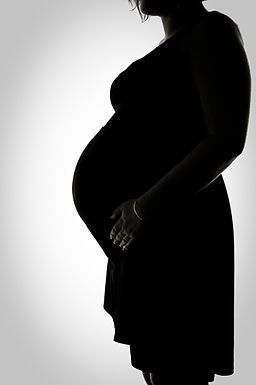Teen Moms Suffer Long-Term Health Consequences

A new study suggests that becoming pregnant as a teenager raises the risk of obesity in later life.
Researchers found that 44.2 percent of women who gave birth as teens were obese, compared with 35.2 percent of women who hadn't given birth as a teen. Overall, women who had given birth between ages 13 and 19 were 32 percent more likely to be obese than women who became mothers later in life.
Commenting on the study, Dr. Tammy Chang of University of Michigan Medical School said, "We know that teen pregnancy is tied to certain immediate risks, such as babies having low birth weight and mothers struggling to complete high school — and now we know that it is also associated with poor long-term health outcomes."
When the researchers accounted for factors that may influence the risk of obesity — including race, income level, and education — the findings held.
Examining data on 5,220 women between ages 20 and 59, researchers compared those who had given birth as a teen with those who had not. Women were classified between normal weight (with a body mass index between 18.5 and 24.9), overweight (with a BMI between 25 and 29.9) or obese (with a BMI higher over 30).
Women who gave birth as a teen were less likely to have normal weight. Among those who gave birth in their teens, 26.1 percent were normal weight, compared with 37.9 percent of women who hadn't given birth in their teens. Researchers estimate that one quarter to one third of all U.S. women ages 20 to 44 are obese.
The researchers noted that their findings show a correlation between teen pregnancy and later obesity, but not a cause-and-effect relationship.
Chang noted that a better understanding of the link between giving birth as a teen and obesity is needed so that teen mothers can get better care. She added, "When taking care of teen moms, we often have so many immediate concerns — child care, housing, school, social and financial support — that we don't often think of the long term health effects of teen pregnancy."
The study, published in the American Journal of Obstetrics and Gynecology, used data gathered from a nationally representative sample of women during the National Health and Nutrition Examination Survey, which is conducted by the Centers for Disease Control and Prevention.



























